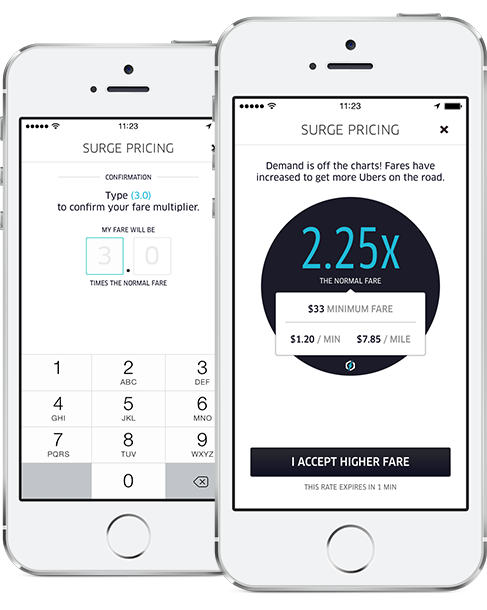Uber Opens In China As Shanghai Restricts Use Of Popular Taxi-Booking Apps

The city of Shanghai is following Beijing’s move to restrict the use of multiple taxi-booking apps, risking the investments of both foreign and domestic companies in the vast Chinese market. The new rules will no longer allow customers to find taxis through smartphone apps during rush hour, and will ban non-commercial vehicles from being hired altogether.
Behind the decision is Shanghai’s Municipal Transport and Port Authority, which is attempting to tame a market that has become highly competitive and probably in need of some regulation. The taxi market is now dominated by two Chinese tech giants, Tencent Holdings Ltd., owner of popular text messaging app WeChat, and the soon-to-be-listed Alibaba Group Holding Ltd. According to iResearch, Tencent’s taxi app, Didi Taxi, and Alibaba’s Kuaidi Taxi combined held about 90 percent of the market’s daily orders this past year. And while both companies have seen great success, the constant competition has made it a customer’s market. Both companies offer huge rebates and incentives to both drivers and riders. After rebates and discounts, some rides have been reported to be as low as 2 yuan, which is approximately 33 cents.
With aggressive marketing and rebates, each company isn’t making its money from the trips, but rather off “location-based advertising,” which uses geo-tagging to select appropriate advertisements relevant to a customer’s location. And both apps are challenging the government’s regulation over the taxi industry by letting users make “bids” for cabs, adding a flat fare before the meter even starts to tick. Whoever offers to pay more will get the cab.
Now Uber, an American company that has already made a splash in various U.S. cities, wants a piece of the China market as well. While Uber is entering an already extremely saturated market, it won’t soon be offering insane price slashing as part of its marketing. Its aim is to provide a more premium experience, ensuring “safe, reliable and enjoyable” rides, Uber’s head of Asia, Allen Penn, told the Wall Street Journal. Launching first in Shanghai with a fleet of sleek, black Audi A6s, the luxury experience is reflected in an increased price -- a ride that would normally cost you 20 yuan using regular taxi meters would cost about 37 with Uber.
The use of taxi apps has divided public opinion. Some drivers rely heavily on such services to keep a constant flow of passengers, and additional bids allow for them to pay off taxi license and car flat fees quicker than relying solely on metered rides. On the other hand, many are complaining that the system has created an uneven playing field for their customers, with empty cabs refusing to pick up customers the "old-fashioned way," particularly during peak times or inclement weather.
In order to curb such abuses, Shanghai can now fine cab drivers for refusing to pick up passengers paying normal metered rates.
© Copyright IBTimes 2025. All rights reserved.





















